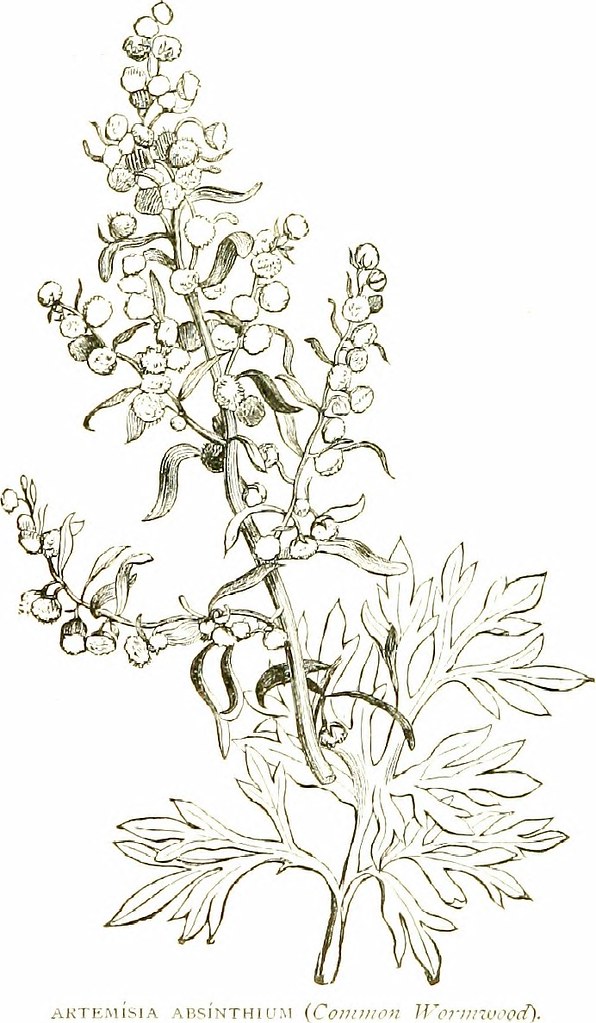The flower artemis absinthium or wormwood produces the famous Absinthe.
The plant artemis absinthium was named after Artemis, the Greek goddess of chastity and childbirth. It helped women during menstruation and the name may have resulted from its ability to demonstrate chastity. Roman writer, Pliny, claims that the name may also have come from Artemisia, the wife of Mausolus. He had no solid evidence, other than the fact that powerful people were keen to have plants named after them.
The flowers of artemis absinthium were used in sacrifices to Egyptian gods around 1500 BC.

The psychotic properties of Absinthe may be traceable to thujone from the flowers. Thujone is a trace chemical that can cause certain physcological side effects.
The Drink
Absinthe became extremely popular in the nineteenth century. However, it was outlawed for the greatest part of the twentieth century.
Absinthe became illegal as a concession to winemakers. It had become such a popular pillar of French culture, that by 1850 the wine industry grew apprehensive about loss of market share to absinthe. They started a propaganda of fake news to damage absinthe’s reputation. Finally, they managed to have it banned.
The cause celebre that put lawmakers in the wine producers pockets was Jean Lefay’s murder of his family in 1904. The wine guys blew up the fact that Jean drank two glasses of Absinthe just before killing off the wife and kids. They seemed to ignored the fact that Jean was a professional drinker. Actually, he had consumed a bottle of brandy and two bottles of wine earlier that day. Rumor has it that Jean drank all the liquor in the house and then he went crazy when he found out that his wife and children were tippling his absinthe. Lefay probably was just another angry drunkard who discovered that the kids were stealing his beer and watering his bourbon.
Absinthe became legal again around 2000. Scientists began to downplay the dangers of wormwood and liquor marketers could foresee a great marketing opportunity.
